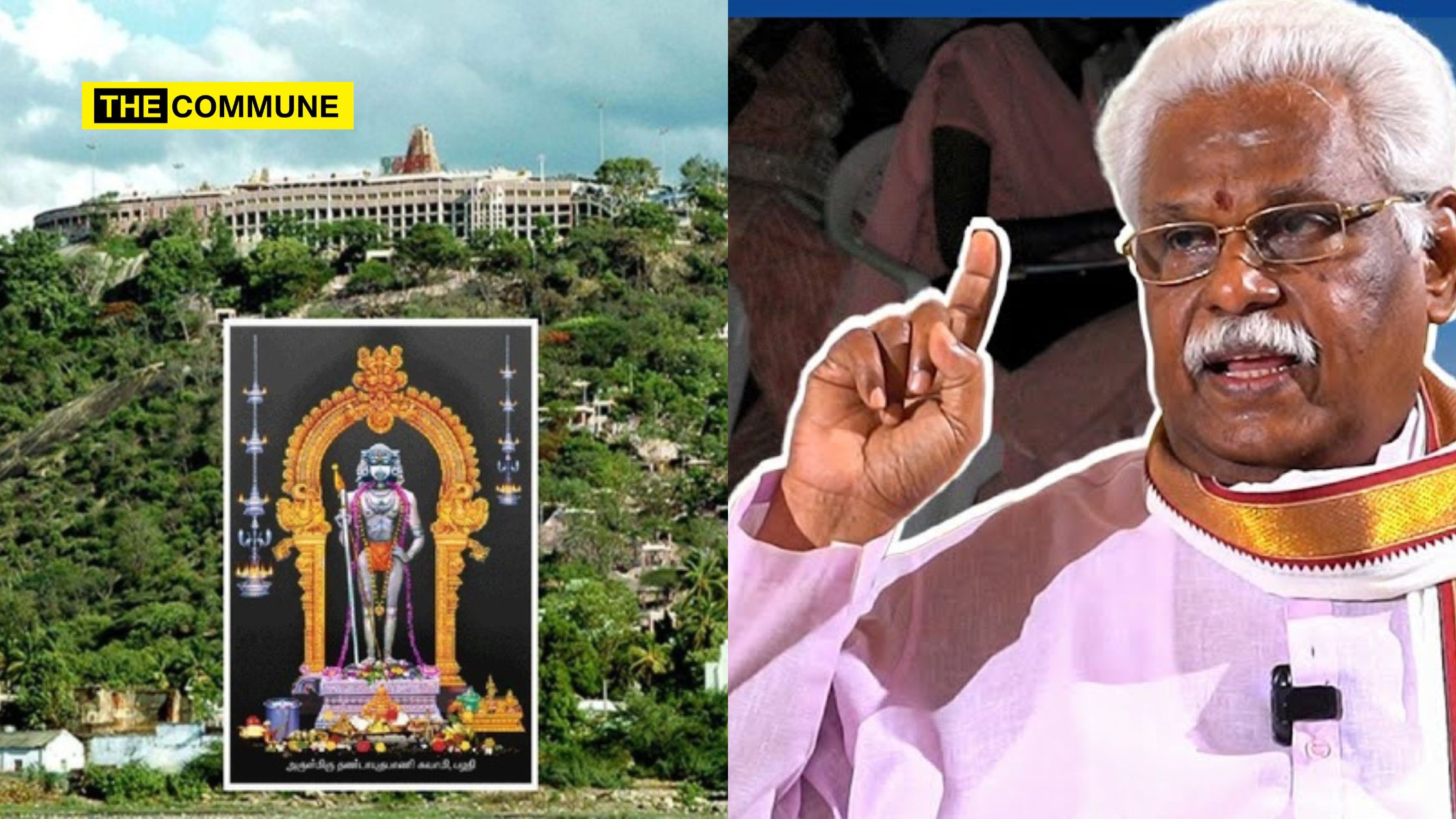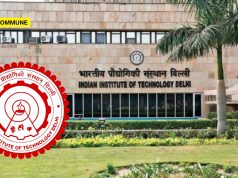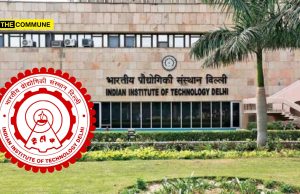
Suki Sivam, a renowned Tamil orator, writer, and self-proclaimed scholar known for subtly intertwining Dravidianist ideology into his spiritual talks, is once again under fire from netizens. He is facing criticism for allegedly spreading a false narrative during his recent interview on a YouTube channel.
Speaking to a YouTube channel, the focus of the interview was on exploring Suki Sivam’s views on politics and religion.
While Suki Sivam is widely recognized as a spiritual speaker, of late he has been called out for mocking Hindu beliefs in certain discourses, especially on platforms associated with the DMK and Dravidianists. It’s worth noting that Suki Sivam gained popularity through the TV show “Indha Naal Iniya Naal” on Sun TV, which is associated with the DMK family.
The host first queried Suki Sivam about the confusion surrounding his identity in spiritual discourse—whether he is a spiritualist, a rationalist, or both. Suki Sivam described himself simply as Suki Sivam, suggesting that spirituality involves a state of awakening that can sometimes isolate individuals from others. He quoted Osho, stating, “You cannot live in the world without idiocy,” seemingly implying that he adjusts between awakened states, compromise, and occasional folly as he interacts with people.
Unsatisfied with Suki Sivam’s response regarding his spiritual or rational stance, the host directly confronted him. Mentioning spiritual figures like Anandarama Deekshidar, Balakrishna Sashtri, and others did not shift away from spiritual discourse, the host pointed out that Suki Sivam is increasingly criticized for emphasizing rationalist leaning. Suki Sivam acknowledged this criticism and attempted to explain that in the past, superstition prevailed. However, the host countered this assertion even before Suki Sivam uttered the word ‘superstition’, leading Suki Sivam to construct a narrative.
Suki Sivam then argued that in history even though spiritualists and politicians influenced each other but maintained distinct roles. He claimed that politicians have appropriated religion, exclaiming, “The politicians have hijacked religion from me, Suddenly they came running snatched religion from me! No one in this country noticed it; they left their jobs to snatch the religion from my hand, Now, I have to fight to reclaim my child.” He emphasized that politicians’ primary duties are administration, focusing on the nation’s economy, irrigation, employment, health, infrastructure, and culture—not religious affairs. He asserted that he possesses a deeper understanding of religion and firmly believes that politicians should not dictate matters of faith.
When Suki Sivam concluded that the politicians have no business in dictating the matter of faith, the host then pointed out that in Tamil Nadu particular groups are repeatedly ridiculing the faith and teasing, belittling, and insulting the gods indirectly indicating the DMK and the Dravidar Kazhagam. Immediately to buttress the DMK and the Dravidianists, Suki Sivam said, “Those politicians should be defeated in the elections, only by using the voters, we can send those politicians home. How are they victorious again? In a democracy, the people believe that there is something true in their saying.”
He immediately peddled that, “Why should the Upanishads come after the Vedas, is the Vedas alone not enough? There is something lacking in it; to bring it to maturity and it becomes Upanishad. If you read the Vedas and the Upanishads, the difference is that in the Vedas there are a lot of prayers and quests, but in the Upanishads, there is wisdom. Now why do the Agamas come after the Vedas and Upanishads to improve a temple system? When implementing this in the society, many confusions come up.” As usual, Suki Sivam constructed a narrative where he described how Hindus historically excluded and discriminated against the downtrodden from temples, later the Mughals and Christians embraced them, resulting in the religion falling into the hands of politicians citing leaders like Narayan Guru and Vivekananda fought for it.
The host then challenged Suki Sivam’s assertion by pointing out that he was referring to Hindu social reformers, while Periyar was an atheist. However, Suki Sivam quickly countered by buttressing E.V. Ramasamy Naicker (EVR), stating, “You should thoroughly examine EVR. Initially, he put his hands on the caste system, then identified its proponents behind caste, attacked it, and then attacked god. In a statement, he said, ‘Is it my fate to speak about it, they made me talk without any other option,’ His focus was societal reform rather than religion.”
In response, Suki Sivam suggested that certain individuals used gods as a cover to destabilize society, indirectly implicating Brahmins. The host pressed for specifics on who these individuals were, but Suki Sivam tactfully sidestepped, citing legal constraints on disclosure and pledging caution. Eventually, Suki Sivam remarked, “Some individuals drove communities away by hiding behind idols of gods.”
A heated debate then erupted between the host and the self-styled spiritualist Suki Sivam. The host argued that while criticizing religious superstitions is acceptable, targeting and ridiculing Hinduism in the name of atheism is unfair. Suki Sivam countered by pointing out that EVR did not engage in electoral politics, but the host countered this by noting that EVR’s followers are now active in elections. Suki Sivam defended the Dravida Munnetra Kazhagam (DMK), saying its followers now advocate “one race, one god,” but the host dismissed this as merely a strategy to gain votes, claiming that EVR lost the battle as his followers eventually accepted the concept of one God.
This criticism angered Suki Sivam, who questioned why there is still fear surrounding discussions about EVR even after his passing. The host then questioned why Suki Sivam continues to ridicule the Vedas despite them being ancient texts with some flaws. Now without any points to counter Suki Sivam strategically steered the debate into philosophy evading politics and EVR.
Then, in a passionate flow, Suki Sivam expressed his reasons for harboring resentment towards Hinduism, stating with arrogance that, “A group that should have followed and respected me disregarded me and created unnecessary animosity due to my caste. They were unwilling to accept my leadership.” The host swiftly countered, attributing the reason to Suki Sivam’s rhetoric presumably the arrogance.
Suki Sivam then seized the opportunity to criticize a Hindu belief where revered gurus are carried on shoulders during festivals as per the devotees’ wishes. Ironically, Suki Sivam acknowledged this as legal but chose to ridicule it, despite advocating for freedom of speech himself. He said, “I did not stop it, but its idiocy.”
The buttressing of the DMK and Dravidian ideology had been somewhat tolerable until now, but this time, Suki Sivam’s statement surprised everyone. When the host asked Suki Sivam about the applicability of Agamas to the Palani temple, he immediately responded that they would not apply, citing the deity known as Sithanathar Swamy and asserting that Murugan there should be presumably be Bogar the Saint. He went on to state that Palani should not be considered one of the six abodes of Murugan.
Suki Sivam stated, “Is there anywhere where the name Siddhanathar exists? It is because he is the leader of the Siddhars. It would be even weirder if I said why; my assumption is that it must be Bogar. The Murugan at Maruthamalai is known as Maruthamalai Andavar, adorned with a Kudumi on his head and a Keepatchi (Dhoti style). The idol develops as the saints around collude with the idol according to the philosophy of Muruga worship. Similarly, Bogar must have been worshipped on the hill as the leader of the Siddhas. In essence, Palani is not among the six abodes of Murugan.“
He continued by suggesting that people are not studying history thoroughly and proposed that the Periyanayaki Amman temple located on the outskirts should be considered as one of the abodes. Suki Sivam then addressed the issue of the flagstaff, reiterating that the Palani temple did not originally have one. This claim was challenged by many, prompting him to reinforce that the flagstaff was erected later during the period of SP Balasubramaniam.
Subscribe to our channels on Telegram, WhatsApp, and Instagram and get the best stories of the day delivered to you personally.




